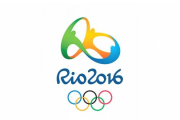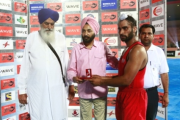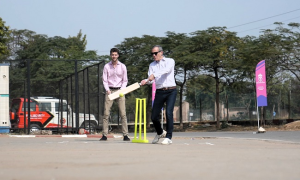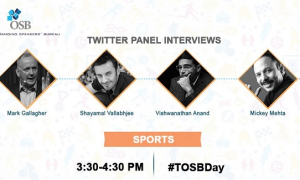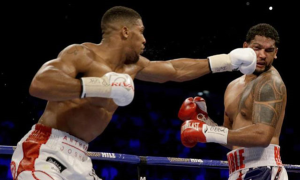Schools teach you lots of things, no doubt! BUT how well do they prepare you for your future life? If I think back to my school days, I sadly realise that when it comes to sports education, I wished I would have been thought many other things. Not just techniques how to be quicker, how to jump higher and further, or how to have a better style in certain sports.
I was very sportive in my life and embraced the opportunity to learn many different sports. To be precise: ice-skating, roller skating, mountain biking, classical ballet, modern dance, Tennis, squash, table tennis, Swimming, skiing, sledging, go kart, motorsports, off-road racing, judo and several disciplines in athletics. In hindsight, I wished someone would have given me many more important tips in order to be even more competitive and better prepared for any sportive competition. However, I did appreciate the advice I’ve been given by my parents. For example: The importance of sleep in order to be well rested and thus, being able to be more focused and relaxed for the crucial time. The importance of a good diet and what to eat and drink before the days prior to the competition, so that I would have the necessary energy and feel stronger in the moments that matter. The importance of thinking strategically in order to trick an opponent and how to take shortcuts (in a honest way!) in order to win.
Little did I know at that time about the importance of MANAGING MY MIND, and not just focusing on managing my body. Jeremy Abbott (figure skater) once said “Once you are out there, it is all about the MENTAL game.” I could not agree more with it! I remember watching a tennis match many years ago between Boris Becker and Andre Agassi. Did you know how Becker managed to distract Agassi and made him lose the game? Becker sent flying kisses to Agassi’s then-girl-friend Brooke Shields who was sitting in the audience. Do you still think it’s all just about physical performance? NO!
What should schools teach in Sports Education? My suggestions:
• Mental Strength
The importance of being mentally strong and having always a positive frame of mind is something that should not be underestimated. You need to know how to make yourself more relaxed once the crucial moment comes, how not to feel intimidated by other opponents or how to think and look confident at all times. It’s surely not easy to be motivated and find real strength, if the game looks as if it has been already lost at an early stage. Having this mental agility of being flexible in your mind and putting it where you need it most – at the right time – can make you win or lose the game. Having perseverance is a crucial ingredient when it comes to succeeding in sports.
According to James E. Loehr there are some mental skills that are characteristic of mentally tough competitors: self-motivation and self-direction, being positive but realistic, being in control of your emotions, act calm and relaxed when under fire, highly energetic and ready for action, self-confident, fully responsible, mentally alert and focused and determined.
• Visualisation techniques
It’s a technique that many Sports Professionals are applying in order to achieve their ambitious goals. It’s basically a process in which you try to program your mind in such a way that allows you to imagine, visualise and feel how you are going to perform, and finally succeed as the winner.
A similar effective approach consists in collecting pictures of past victories (your own or other peoples’ that you admire for their achievements) and put them on your wall. Looking often at them (also before going to sleep) might help you increase your motivation.
Doing some positive self-talk is also a technique that many successful people apply, not just in sports but also in business. Tell yourself instructional, encouraging and motivational sentences, such as “I’m going to win this, I know it! Nobody is better than me!” or “I’ve done it once, and I can do it again. I will show them!” or “I’m simply the best! Nobody is going to beat me. I know it!” or “I feel so strong and I’m going to win this game again. Wow!” or “I have fire in my belly. I’m going to outperform everyone else!” or “I know that I can, I can, I can!” Your subconscious mind will accept your positive messages and success will follow. Believing in yourself is important! But be warned, if you just repeat those messages without believing strongly in them, you will not achieve what you wish to achieve!
• Observing and analysing others
Did your sports education give you the opportunity to analyse your opponents’ performance and style in order for you to excel next time? A lot can be learnt by observing others. What mistakes did they make, are you making similar mistakes too maybe? By watching others when they perform (maybe even having it recorded on video), you will get insights which you might have otherwise never got to know.
• Learning from your mistakes
Sports Education should teach you that once a competition is finished, it would be a waste of time to think and tell yourself “I blew it!” “What an idiot I was!” Instead, one should be encouraged to reflect upon their mistakes and turn them into an action plan with a to-do list in preparation for their next challenge. Each sport experience can teach you something about yourself, your attitude and your strategy. If you look at the situation from different angles and reflect more consciously on your performance, you are more likely to succeed in the future.
• Losing graciously
It’s not difficult to be a grateful winner, the art consists in accepting defeat with grace. As a child I used to cry every time I got third place in my skiing competitions because I wanted to be the winner and get GOLD. It took me some time to digest the defeat and appreciate the fact, that I was one out of three to even get a medal! As you see not everyone is a master in coping easily with defeat. Coping with loss is an important lesson, which not only in sports matters, but also later on in life. Learn to look at failure in a positive way. See it as a way to get even more motivated for the next upcoming challenge.
Tags: Motorsports, Schools, Sports, Sports Education, Swimming, Tennis



